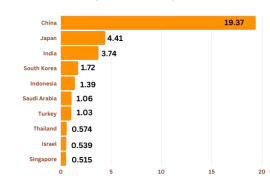Success in proprietary trading (prop trading) demands a unique set of skills that go beyond basic knowledge of financial markets. Traders in proprietary trading firms must possess a combination of technical expertise, analytical ability, and psychological resilience to navigate the complexities of global financial markets. This article explores six essential skills required to excel in prop trading, highlighting their significance in achieving consistent profitability and career advancement in this competitive industry.
1. Analytical Skills
Prop traders need to possess strong analytical skills in order to understand market data, recognize trading opportunities, and make judgments based on accurate information. Traders are required to have good quantitative skills in order to assess financial accounts, evaluate economic data, and comprehend market movements.

Having a strong understanding of statistical analysis and the tools that are used to visualize data gives traders the ability to create and evaluate trading strategies successfully. Additionally, traders are able to evaluate risk-reward ratios, optimize trade executions, and adjust tactics in response to changing market circumstances when they possess the ability to think critically.
2. Risk Management
It is essential to have efficient risk management in prop trading in order to safeguard funds and reduce the likelihood of incurring losses. For traders to be successful, they need to have a complete grasp of risk indicators such as value-at-risk (VaR), drawdowns, and volatility measures. It is easier for traders to limit their exposure to market volatility and unanticipated occurrences when they put risk management measures into action.
Some examples of these tactics include position size, stop-loss orders, and portfolio diversification. In addition, maintaining a disciplined approach to risk management techniques guarantees stability in trading performance and long-term profitability despite market fluctuations.
3. Decision-Making Under Pressure
Prop trading situations are defined by the need for traders to make decisions quickly and under pressure, which requires them to keep calm and see things clearly by their judgment. It is very necessary to possess the skills necessary to quickly evaluate market information, carry out transactions in an effective manner, and concurrently manage various positions. In order for traders to successfully navigate tumultuous market circumstances and capitalize on transitory trading opportunities, they must cultivate emotional resilience and maintain psychological equilibrium. The ability to make sound decisions under pressure can be developed by experience, practice, and the ongoing refining of trading strategies and execution skills.
4. Adaptability
Adaptability is a key skill for prop traders to thrive in dynamic and ever-changing market landscapes. Markets undergo constant fluctuations influenced by economic events, geopolitical developments, and technological advancements. Traders must stay abreast of market trends, regulatory changes, and emerging trading technologies to adapt their strategies accordingly. Flexibility in adjusting trading approaches, incorporating new information, and seizing evolving opportunities allows traders to remain competitive and resilient in volatile market environments.
5. Discipline and Patience
Discipline and patience are foundational traits that distinguish successful prop trading firms from their peers. Adhering to trading plans, executing strategies consistently, and maintaining a structured approach to trading activities are hallmarks of disciplined traders. Patience is crucial in waiting for favorable trading setups and avoiding impulsive decisions driven by emotions or market noise. Cultivating discipline and patience fosters a systematic approach to trading, enhances risk management practices, and promotes sustainable trading performance over the long term.
6. Continuous Learning and Adaptation
Prop trading demands continuous learning and adaptation to stay ahead in competitive financial markets. Traders must remain proactive in expanding their knowledge base, mastering new trading techniques, and refining existing skills . Engaging in ongoing market research, attending professional development seminars, and collaborating with peers facilitate continuous learning. Embracing innovation and leveraging technological advancements in algorithmic trading, artificial intelligence, and machine learning enhances trading efficiency and effectiveness. Adopting a growth mindset and embracing lifelong learning is essential for prop traders to navigate industry complexities and achieve sustained success.
Conclusion
Success in prop trading hinges on a diverse skill set encompassing analytical abilities, risk management proficiency, decision-making under pressure, adaptability, discipline, and continuous learning. These skills enable traders to navigate volatile markets, capitalize on trading opportunities, and manage risk effectively. Aspiring prop traders should prioritize developing and refining these essential skills to enhance trading performance, foster career advancement, and achieve long-term profitability in the competitive world of proprietary trading.







